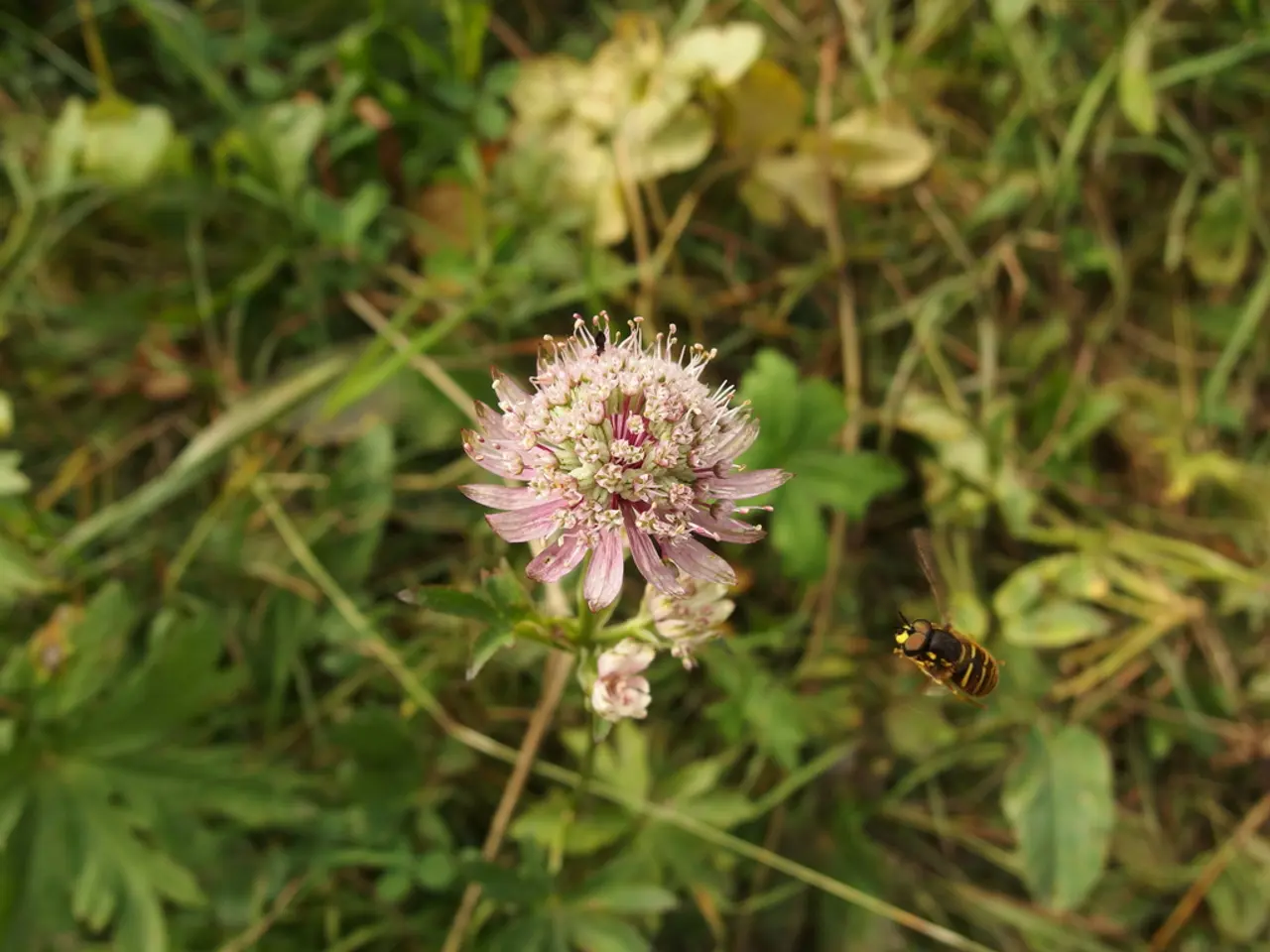Avoid exterminating wasps; they might be irritating, yet they're beneficial to have in your garden
Unveiling the Unsung Heroes of the Garden: Wasps
Wasps, often misunderstood and maligned for their sting, play a pivotal role in maintaining a balanced garden ecosystem. With over 100,000 described species worldwide, these insects offer invaluable services as pollinators, pest controllers, and decomposers.
Pollination: The Unseen Contributors
While bees are the most recognized pollinators, wasps also contribute significantly to this essential process. They visit flowers to feed on nectar, thereby transferring pollen and aiding plant reproduction. This makes them important pollinators in many ecosystems, including gardens.
Pest Control: Nature's Insect Patrol
Wasps are natural hunters, especially of other insects like caterpillars, aphids, and weevils, which are common garden pests. Many parasitoid wasps lay eggs on or inside insect larvae; the wasp larvae then consume the pest, naturally reducing harmful insect populations without chemicals. This biological pest control helps maintain garden health.
Decomposition: Nature's Cleaners
Social wasps act as decomposers by hunting and feeding on carrion (dead animals), helping to clear dead insect and animal matter from the garden. This scavenging behavior contributes to nutrient cycling and garden cleanliness.
Additional Ecological Benefits
Ground-nesting wasps contribute to soil aeration and nutrient cycling by digging tunnels, which enhances soil health and promotes biodiversity in the garden environment.
The Social Life of Wasps
Social wasps, like honeybees, have a hierarchical society with a single queen, thousands of workers, and a colony that produces only workers until late summer. Worker wasps bring live and dead prey back to the colony to feed developing larvae. In late summer, the queen switches to producing sexual brood - young queens and males.
The Tiny Titan: The Fairy Fly
The smallest wasp, the fairy fly, is less than 0.015mm in size, making it barely visible to the naked eye. Despite its minuscule size, it plays a crucial role in its ecosystem as a parasitoid wasp.
The Giant Northern Hornet: A Farmed Delicacy
On the other end of the size spectrum, the Giant Northern hornet, Vespa mandarinia, has a wingspan of 12 cm and can fly up to 40km/hr. It is farmed in its native Asia for its tasty and nutritious larvae.
A British Perspective
In the UK, only 9 species of social wasps are found, and there are 7,000 species of wasps in total. Mated young queens hibernate and establish a new nest next spring. Most people don't like wasps because they sting, but 70% of wasps don't sting. Social wasps only become bothersome at the end of the summer, as they have less hunting to do.
In conclusion, wasps are unsung heroes in our gardens, providing essential services that help maintain a healthy, balanced ecosystem. By understanding their role and importance, we can appreciate these often-maligned insects and learn to coexist with them harmoniously.
[1] National Wildlife Federation. (n.d.). The Importance of Wasps in the Garden. Retrieved from https://www.nwf.org/Garden-for-Wildlife/Certify/Wildlife-Benefits/Insects/Wasps
[2] The Spruce. (2021, March 17). Wasps: The Benefits of Having Them Around Your Garden. Retrieved from https://www.thespruce.com/wasps-benefits-of-having-them-around-1398517
[3] BBC Earth. (n.d.). Wasps: Nature's Pest Controllers. Retrieved from https://www.bbcearth.com/nature/article/wasps-natures-pest-controllers
[4] The Guardian. (2018, August 18). Wasps are not the enemy: they are vital pollinators. Retrieved from https://www.theguardian.com/environment/2018/aug/18/wasps-are-not-the-enemy-they-are-vital-pollinators
[5] Cornell University. (n.d.). Wasps: Beneficial Insects in Your Garden. Retrieved from https://entomology.cornell.edu/wasps-beneficial-insects-your-garden/
- In gardens, wasps contribute as pollinators, just like bees, by visiting flowers and transferring pollen, aiding plant reproduction.
- Beyond their role as pest controllers, social wasps also help with soil health by digging tunnels, promoting nutrient cycling and biodiversity.
- Household gardening and home-and-garden enthusiasts can value wasps as allies, appreciating their pollination, pest control, landscaping, and lifestyle-enhancing benefits in the garden.




